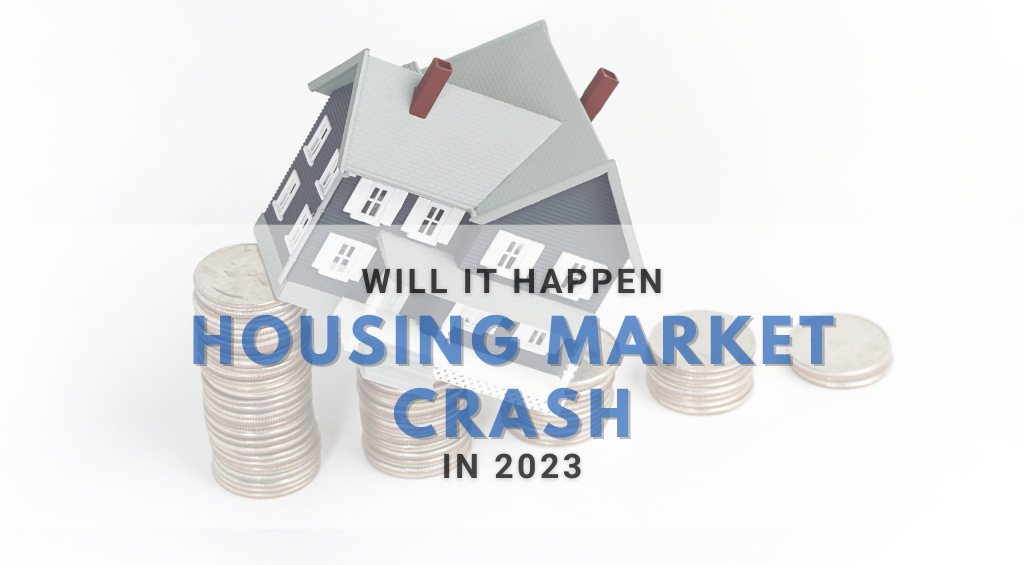A housing market crash is expected over the next three years, according to 67% of Americans. It is understandable that so many individuals feel this way given the recent media attention given to changes in the property market. There is good news, though.
According to recent research, the market now is very different from what it was before the 2008 housing market crash.
In this post, we’ll examine the economy more closely and evaluate the likelihood of a housing market crash in the near future. We’ll look at the economy’s underlying principles, how recent events have affected things, and the potential repercussions of a housing market crash. We’ll also offer some advice on how to safeguard your family and yourself from any potential repercussions.
The Real Estate Bubble and What Causes It
Like a sudden increase in the price of any good or service, a housing bubble often starts with a rise in demand and a shortage of available stock.
In the middle of the 1990s, the housing bubble in the United States developed alongside the stock bubble. The rise of the bubble follows a very straightforward logic. Individuals were making purchases based on their increased wealth, which they had significantly gained as a result of the unprecedented run-up in stock prices.
With the savings rate from disposable income declining from close to 5.0 percent in the middle of the decade to just over 2 percent by 2000, this caused the consumption bubble of the late 1990s.
They bought bigger and/or nicer homes as a result of the consumption boom brought on by the increase in stock money because they wanted to invest part of their new stock riches in housing. Since the supply of housing is largely fixed in the short term, this increase in demand had the effect of starting a housing bubble.
As a result, a rise in demand first causes a rise in price. Expectations of price rises changed when they started to rise in the most affected areas.
Homebuyers paid far more for properties than they would have otherwise due to the anticipation that prices would continue to climb, which made the expectations self-fulfilling.
A bubble is a transient occurrence. On the stock market, they grow swiftly and have the potential to expand much more quickly.
Many years might pass before a housing bubble bursts, according to the International Monetary Fund (IMF).
But other influences have the power to deflate a booming property market at any time. Many people become unable to afford their monthly carrying costs as mortgage rates rise.
During a recession, a rise in unemployment lowers the pool of potential homebuyers. Investors stop looking for properties to flip when they feel uneasy.

The Present Situation: How soon the market crash to happen
Homebuilders will need many years to create enough new supply to bring the market into equilibrium because they haven’t built nearly enough homes during the past ten years, which is the primary cause of the rapid increase in housing prices in the past two years of the pandemic. The amount of time it would take to sell all the homes on the market at the current sales rate would be approximately six months in a balanced market.
Nonetheless, the market’s current supply is only 2.9 months (up from 1.7 months in December 2021), demonstrating a huge imbalance in favor of sellers. There are no indications that the housing market crash will occur again in 2023 even if mortgage rates are expected to remain high throughout the year.
The housing boom brought on by the pandemic will slightly slow.
Unsold inventory has a current supply of just 2.7 months at the current sales rate, which is far less than it had previously. There just isn’t enough inventory on the market for home prices to decrease as they did the last time, even though some overheated markets may experience slight drops.
The housing market will face significant problems for the rest of the year due to the slowing economy, rising consumer prices, and interest rates. Yet, a robust labor market continues to support demand, and improving supply dynamics should prevent the construction sector from swiftly declining.
High prices and lending rates provide difficulties for today’s purchasers. They live amid housing shortages as a result of rising property prices and lagging new home restrictions.
Some buyers relocate from expensive urban areas to smaller communities. Even if delaying other expenses to purchase a home now during inflation could result in financial savings if prices and equity increase.
By purchasing a house and securing a rate before rates and prices increase even more, buyers may save money.
Housing availability and demand are impacted by the economy. More numbers of people will buy and sell real estate if the economy is strong. Inflation reduces consumer income when the economy isn’t doing well. Their weekly earnings and wages aren’t increasing as quickly. Home values are influenced by supply and demand. Due to an abundance of houses, prices will fall even if inflation is strong.
The End Result of A Market Crash
The subprime mortgage catastrophe caused many people to lose their homes, and the ensuing consequences resulted in economic stagnation. Customers were put in danger financially when the value of their homes plummeted significantly below the amount they had borrowed and subprime interest rates shot up.
In some parts of the country, the average monthly mortgage payment nearly doubled. Most of the time, defaulting on your mortgage was preferable to paying more for a home whose value had drastically decreased.
As a result, there was a steep reduction in home construction, which decreased the number of new dwellings available for a population that was expanding. Low supply and high demand led to the emergence of a seller’s market in the real estate industry. As more people fought for fewer available homes, home costs increased.
Bottom Line
A few variables, according to U.S. News & World Report, could cause the housing market crash even though the current situation does not indicate one. They include a sharp rise in unemployment, a persistent housing shortage, and decreased demand in general.
In 2023, the US housing market will be at a turning point, with divergent predictions for its future. While some economists predict a meltdown in the housing market, others see a more balanced market with single-digit yearly growth.
Most real estate experts do not think that the market will fall or cause a recession, despite the fact that it is changing. To avoid a repeat of the Great Recession, the mortgage industry has taken action, and the bulk of subprime mortgages have been terminated.
Most want to avoid another 18 months of misery because the housing shortage is too acute.
The demand for housing from Millennials and Generation Z is anticipated to stay high. There are no indications that the housing market will crash again in 2023, even though demand may be declining and the pandemic-induced house boom may be slowing down a bit.
If recent news has you concerned that another housing market crash is impending, the information above should assuage your worries. It is abundantly clear from the most recent data and professional research that the market has changed significantly from the past.

